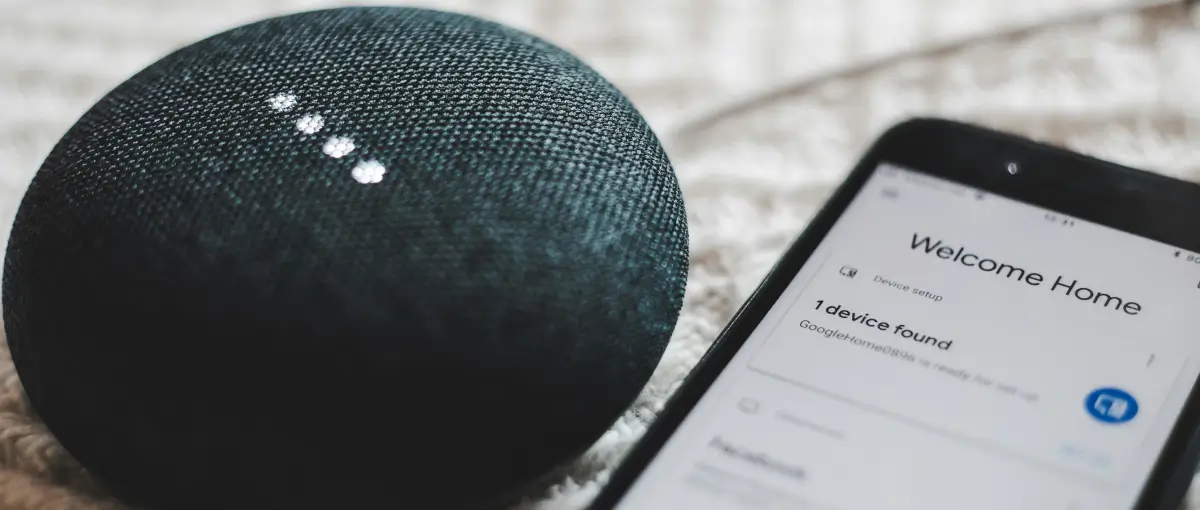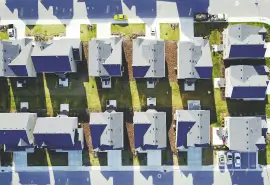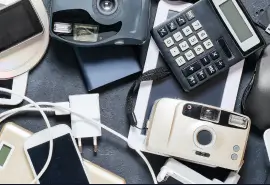Technology is constantly evolving with new gadgets being released regularly all around the world. While many tech devices are created with the goal of making life easier, some newer products seem to frustrate users even more. While 89% of Americans own smart home technology, some are starting to have second thoughts about its value.
At Secure Data Recovery, we know that technology has its pros and cons, and we understand that some devices that promise to put your life at ease may actually do the opposite, putting you on edge with hassles or lack of security. So we set out to learn which states are thriving in a world of smart home devices and which states are feeling fatigued by the tech. We surveyed residents in each state to ask about their experiences, frustrations, and more. Read on to see how your opinions compare to the rest of the country.
Key takeaways
- Virginia, California, and Colorado residents experience the most smart home fatigue in 2024.
- Maryland, Nebraska, and South Carolina residents experience the least smart home fatigue in 2024.
- Amazon, Arlo, and iRobot Roomba are the smart home brands Americans are most often frustrated by.
- 1 in 3 Americans get frustrated with their smart home devices at least once a week.
- Women are more likely than men to not want smart home devices in their homes.
- 1 in 4 Americans with smart home devices say they are not worth the hassle.
The states where Americans are most tired of smart home devices
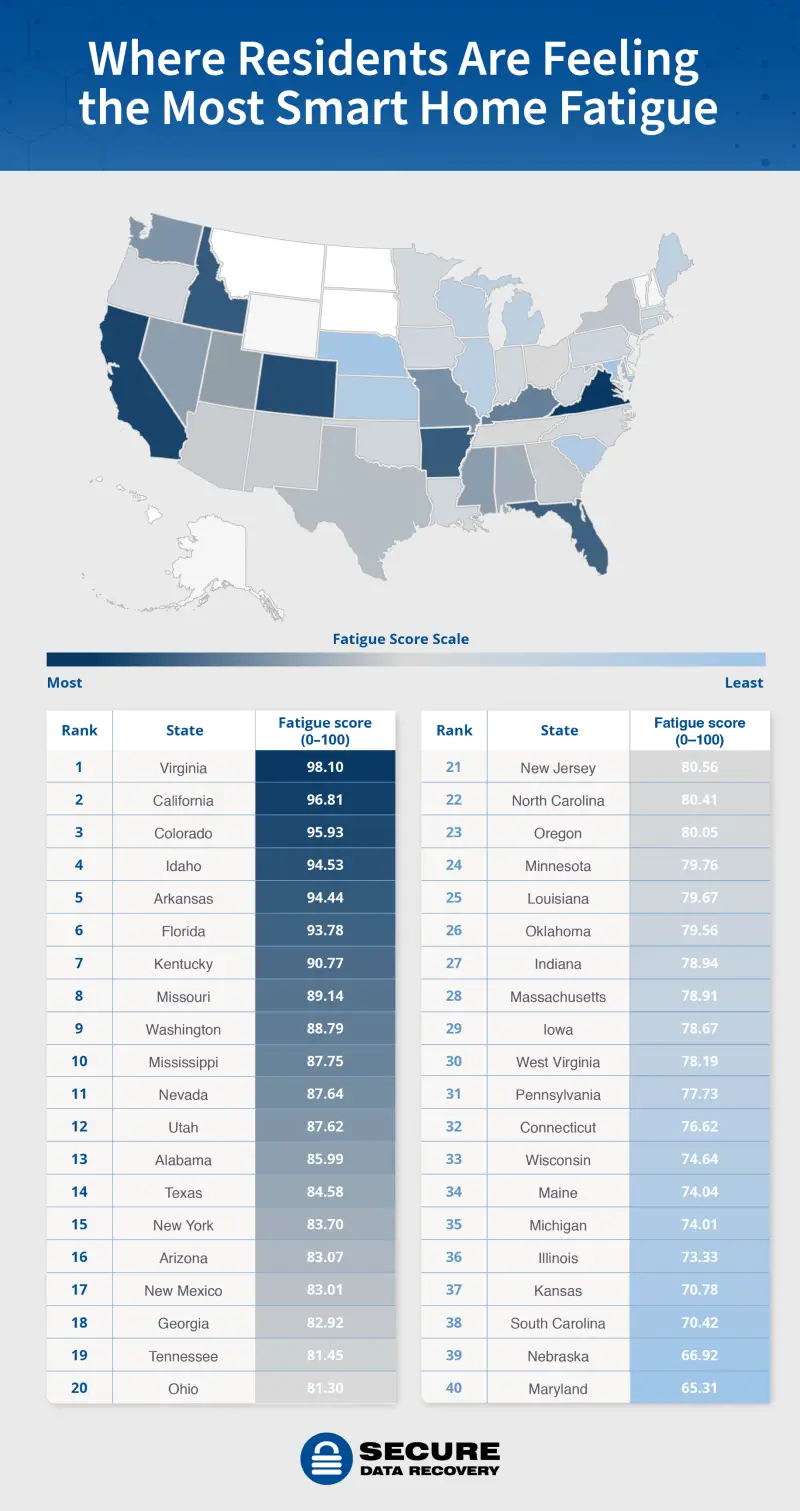
While some Americans love tech and want a house full of the latest devices, others have grown tired of technical difficulties. Leading the way as the most fatigued by smart home devices is Virginia. With a fatigue score of 98.10 out of 100, 81% of residents say they have experienced compatibility issues with other devices.
In second place is California where 98% of the state’s residents say devices they purchased didn’t work properly. Additionally, nearly two-thirds of The Golden State’s residents say they have trouble remembering passwords for their devices, adding to their frustration.
In third place is Colorado with a fatigue score of 95.93 out of 100. We found residents of the state noted connectivity issues, devices not working properly, and complicated setups as the most common troubles faced with smart home devices.
On the other end of the spectrum, Maryland residents ranked for the least fatigue as they reported the least issues with their devices. We found TVs, speakers, and lighting are the most popular smart devices among the state’s residents. Similarly, Nebraska and South Carolina residents also rank among the least fatigued in the U.S.
Americans’ view of smart home devices
After analyzing the fatigue levels by state, we turned our attention to the overall views Americans have regarding smart home devices. From security concerns to frustration with faulty equipment, many people who have purchased the technology in the past don’t plan to again in the future.
Among the respondents, we found women are more likely than men to not want the devices in their homes. To push the subject further, if given a choice, 1 in 3 people would rather never have smart home devices again than only have smart home devices in their homes forever. Additionally, 1 in 4 people with the tech say they don’t think they’re worth the hassle.
While prices for devices can vary, 70% of Americans with smart home technology think the devices are too expensive. In conjunction with high costs, more than one-third of people find the tech to be too complicated. Like all technology, there can be a learning curve to understanding how different devices work, but 1 in 2 people say their smart home tech simply had issues too often.
Another area of concern among Americans when it comes to smart home technology is their data security and privacy as 53% of people say their devices made them nervous.
The most common issues and brands Americans are frustrated by
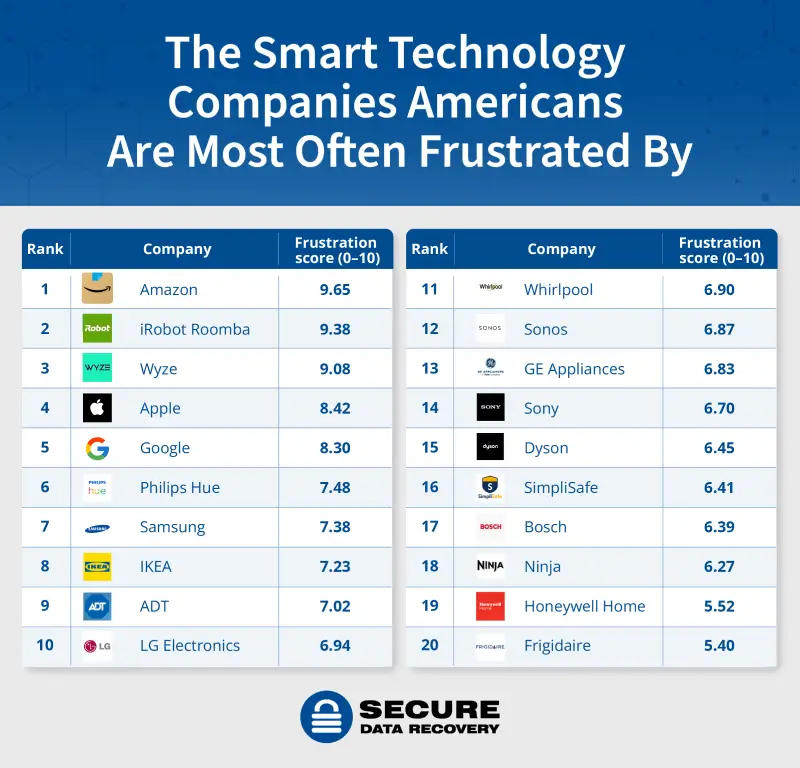
Over the years, many companies have entered the smart home technology game. From TVs and speakers to vacuums and video surveillance, there are many items and brands to choose from. With 87% reporting that their smart home devices don't work properly, we wanted to learn which brands Americans report the most trouble with. To do this, we calculated a frustration score on a scale of 0 to 10, with 10 representing the most frustrated. Leading the way with a score of 9.65 is Amazon as users are the most likely to consider their devices to be very unreliable or annoying.
Second on the list is iRobot Roomba with a score of 9.38 out of 10. The company specializes in cleaning robots like vacuum cleaners and mops that run on preset schedules, but according to users, the products frequently cause frustration.
In third place is Wyze, which offers a wide range of products from lighting and door locks to thermostats and air filters, with a score of 9.08. Following closely behind is Apple and Google in fourth and fifth place, respectively.
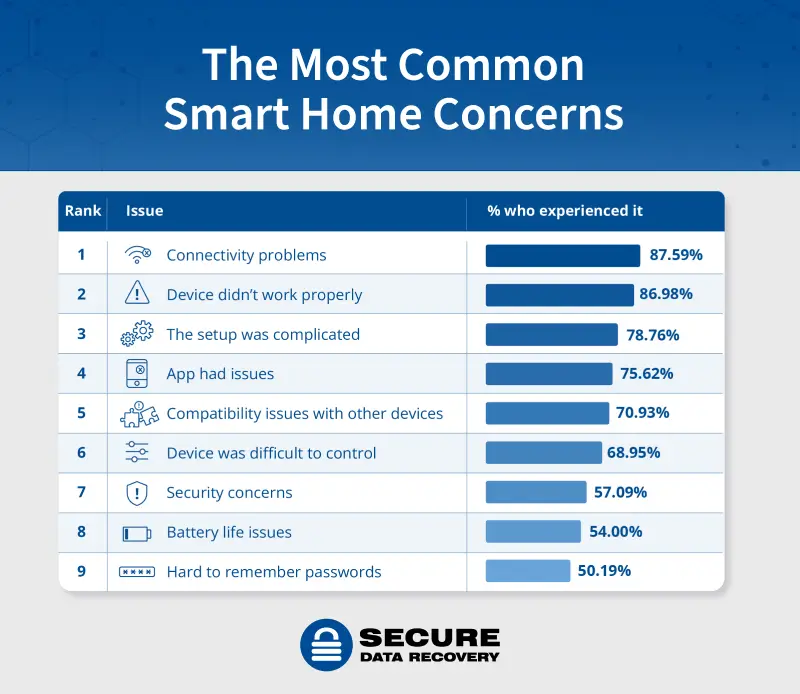
Overall, we discovered that 1 in 3 Americans get frustrated with their smart home devices at least once a week. So in addition to the brands people are annoyed by, we also set out to learn what causes the frustration. Topping the list with 88% reporting it, is connectivity issues with devices. The set up ranks second as 79% report issues with the process.
The issues don’t stop at the set up, however, as nearly 7 in 10 people found the devices difficult to control. Additionally, nearly 3 in 5 people say they had security concerns with their smart home devices and 54% complained about the battery life of their tech.
Conclusion
There can be many frustrating aspects to using technology, from complicated setups to connectivity issues. However, data loss doesn’t have to be one of them. Our certified engineers have resolved more than 100,000 cases, so you can rest easy knowing that your most important files can be recovered. From external hard drive recovery to iPhone data recovery services, we have you covered with our No Data, No Recovery Fee guarantee, so you can explore all of the new technology with peace of mind.
Methodology
In this study, we set out to determine where Americans are growing tired of smart home devices. To do this, we surveyed residents in every state and asked if they have or have had smart home devices, what their experiences have been with specific brands, how much trust they have in these devices, and more. We then awarded points to responses that showed frustration with smart home devices and calculated the average score by state. Finally, we adjusted those scores on a scale of 0 to 100, with 100 representing the most fatigued.
In addition to the overall scoring, we also wanted to determine which popular smart home device brands are causing Americans the most trouble. We asked respondents to rate the frequency of their frustration and then found the average score for each brand. We then limited our list to the 20 most used brands and adjusted those scores on a scale of 0 to 10, with 10 representing frustration most often.

